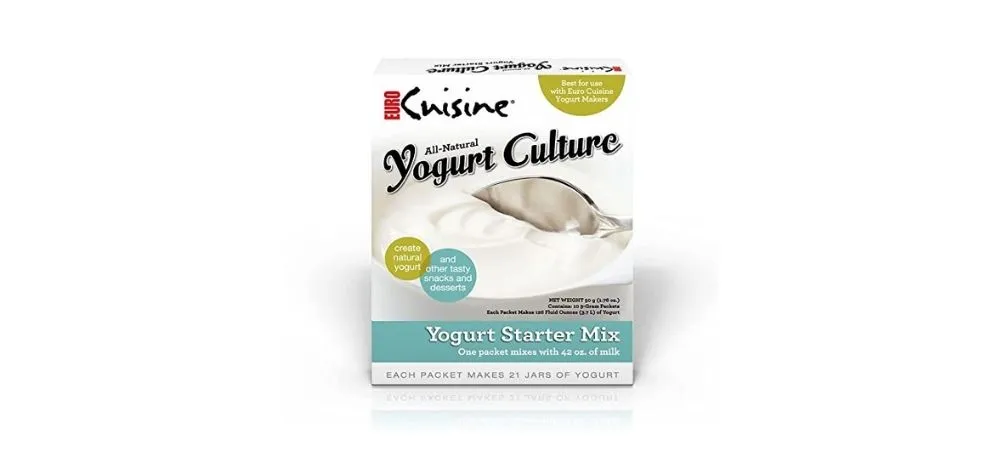Both whole Grass-Fed Whole milk yogurt and coconut yogurt provide good calcium, protein, probiotics, and healthy fats. Yogurt is also an excellent choice for people who have dairy sensitivities or allergies. The biggest difference between the two yogurts is that grass-fed whole milk will have more nutrients while coconut yogurt will have a higher fat content.
According to Quora users, Coconut milk is high in healthy fats which have proven effects in reading bad cholesterol as per some studies.
Hence the question arises, Is coconut yogurt better than milk yogurt? Let’s find out the real answer after carefully analysing the various aspects.
What is grass-fed whole milk yogurt?
Grass-fed milk is milk that comes from cows whose diets consist of only grass and other foraged foods. Grass-fed dairy contains more omega 3 fatty acids than grain-fed animal products, making it healthier than conventional milk. It also has higher vitamin A, beta carotene, vitamin E, and CLA (conjugated.
Related Posts:
- What are the Different Types of Yogurt?
- How To Make Smoothie Without Yogurt?
- What are the Substitutes of Yogurt?
- What Yogurt is Dairy-Free?
Benefits of grass-fed whole milk yogurt?

Yogurt made from the milk of grass-fed cows contains higher levels of CLA (Conjugated Linoleic Acid), Vitamin E, Beta Carotene. Grass-fed dairy products have also been shown to have lower quantities of mycotoxins. Mycotoxins are toxins produced by fungi in the environment that can get into the food supply.
Related Posts
Yogurt Vs Milk – what should i choose?
Sour Cream Vs Yogurt – Can i substitute yogurt for sour cream?
Kefir Vs Yogurt – What makes them different?
Regular Yogurt Vs Greek Yogurt – Which one should I buy?
Frozen Yogurt Vs Ice-cream – Which is better
Yogurt Vs Curd – Which is better?
Greek Yogurt Vs Turkish Yogurt – How to distinguish between them
What is CLA?
Conjugated Linoleic Acid (CLA) is a naturally occurring, healthy fatty acid found in grass-fed dairy products and grass-fed beef. Studies show that CLA may help regulate body fat, glucose, and insulin metabolism and have anti-cancer properties. These benefits were not observed in the milk of grain-fed cows.
What is coconut Yogurt?
Coconut yogurt is yogurt made from the milk of young (or green) coconuts. The yogurt is thick and creamy like traditional dairy yogurt, but it can taste very different depending on its flavorings. It’s also higher in fat than dairy or soy yogurt, with about 3-5 grams.
What are the benefits of coconut yogurt?
Coconut yogurt provides a good source of lauric acid, which has been promoted as beneficial for immunity and metabolism. The fat content from coconuts is good for people watching their weight since the fat is burned easier by the body.
Eating 100 grams of coconut yogurt gives you:
- 21% of the DV for Vitamin B12
- 21% of the DV for Calcium
- 18% of the DV for Vitamin D
- 21% of the DV for Magnesium
(Source credit: livestrong.com)
Storebought coconut yogurts are fortified with many vitamins and minerals which any homemade coconut yogurt is consist of!
If you don’t have time to make coconut yogurt at home, here are some of the recommended choices from Amazon:
- Chobani® Low-Fat Greek Yogurt Coconut
- So Delicious Dairy Free Coconut Milk Yogurt
- GTS Yogurt Coconut
- Culina Organic Dairy Free Coconut Yogurt
However, if you want to try coconut yogurt making process at home, you can get some essential starter kits here.
Are there any other differences between grass-fed whole milk yogurt and coconut yogurt?
Coconut yogurt is higher in saturated fat than other types of yogurts made from cream or whole milk. It is also beneficial for weight loss because it increases energy expenditure, which helps to lose weight.
Coconut milk is also lower in protein than cow’s milk, which makes coconut yogurt less filling. There are also more added sugars in coconut yogurts because coconuts naturally contain sweetness, whereas grass-fed dairy products are low in sugar.
On careful analysis, i further found that coconut yogurt gives you 3X more total fat which accounts for 4X more saturated fat than any full-fat dairy yogurt.
| Nutritional Facts | Grass-Fed Yogurt | Coconut Yogurt |
| Carbs | 10 g | 18.1 g |
| Protein | 8 g | 0.8g |
| Fat | 9 g | 8.6 g |
Are there health benefits to eating yogurt over other dairy products?

Yogurt is an excellent source of calcium, vitamin D, and protein while being lower in sugar than other dairy products like ice cream or cheese. Probiotics are also present in yogurt but not in other dairy products. Probiotics support a healthy immune system, aid in digestion and metabolism.
How to choose the healthiest yogurt?
Look for organic and grass-fed dairy products or coconut yogurt with the highest levels of CLA and without added sugars.
Grass-fed dairy products are higher in omega 3 fatty acids, CLA, beta carotene, and vitamin E. These nutrients have anti-inflammatory benefits, cancer-fighting properties and may help with weight loss.
What about the benefits of CLA and beta-carotene?
Studies show that grass-fed dairy products contain higher levels of CLA and beta carotene than conventional milk, which may help weight loss and fight cancer. Grass-fed dairy products also have lower quantities of mycotoxins than conventional or grain-fed dairy products.
What are mycotoxins?
Mycotoxins are toxins that develop from molds found in the environment. They can contaminate food crops during harvest or storage, become airborne, and end up on fresh produce in grocery stores and your fridge. Research has shown that mycotoxins can impact the immune and nervous systems and contribute to insulin resistance.
Conclusion
There are many nutritional benefits to eating coconut yogurt or dairy-based yogurt. If you choose between the two, it may be best to buy organic and grass-fed dairy products because they have higher levels of CLA, beta carotene, vitamin E & lower quantities of mycotoxins than conventional or grain-fed dairy products.










